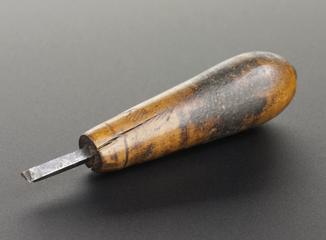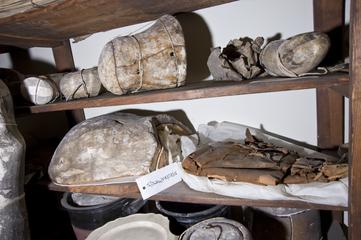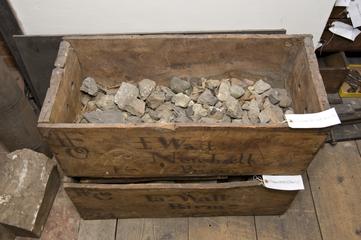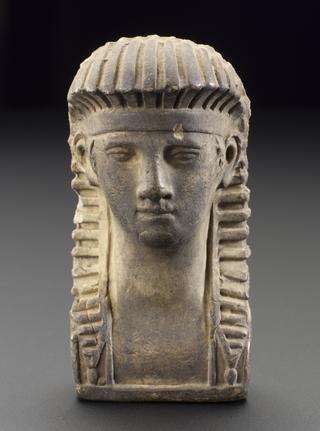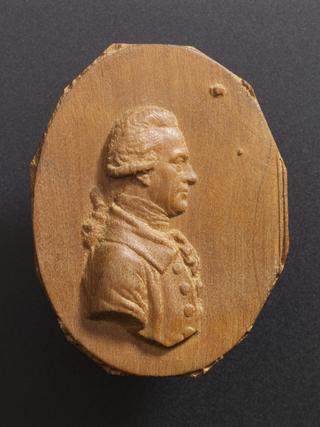
Wood and iron truss for sculpture machine
- Made:
- 1790-1819
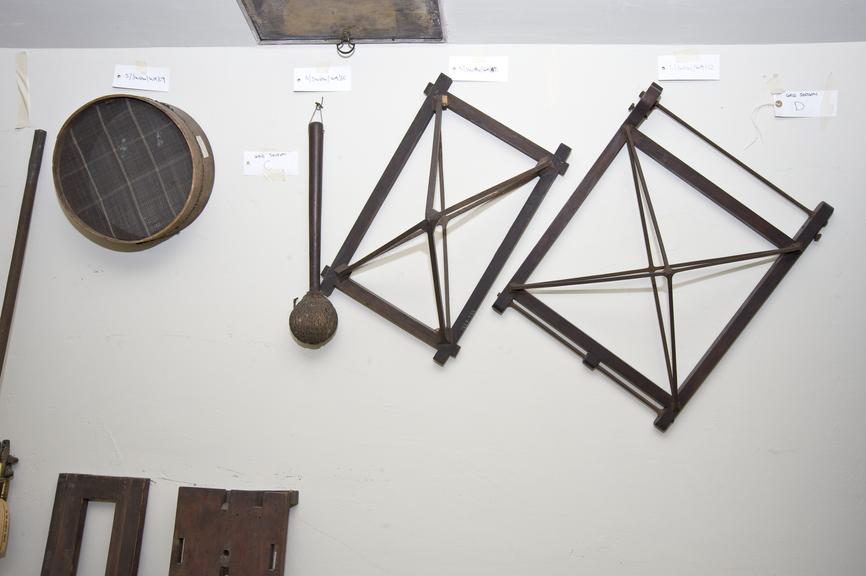
Wood and iron truss for sculpture machine
This item is part of the contents of the workshop that Scottish engineer James Watt developed at his home, Heathfield, at Handsworth, Birmingham, from c.1795 through to his death in 1819. Although Watt is best known for his work on the steam engine, his workshop contains a wide variety of objects from many different projects, from chemistry to sculpture-copying.
The description of the item was written by Edward Collins, the land agent responsible for Heathfield when the workshop was given to the Science Museum in 1924. Collins could not always identify what he was looking at, but always described what he saw clearly. This has allowed his descriptions to form the basis of subsequent research.
This frame was designed to support the stylus and cutting tool on Watt's equal-size sculpture copying machine, which remains in his workshop. Designing the frame was a matter of establishing a fine balance between being strong enough to not deflect when placed under load, and light enough to be easily moveable. This is one of a series of designs for the frame which survive.
Details
- Category:
- James Watt's Garret Workshop
- Object Number:
- 1924-792/1886/2
- Materials:
- iron and wood (unidentified)
- type:
- truss
- credit:
- Major J.M. Gibson-Watt
